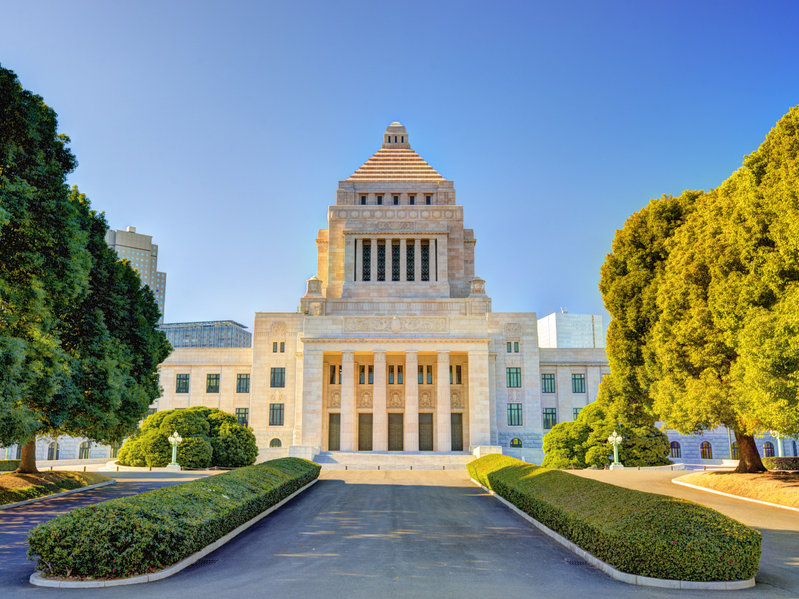What did Japan do after the bombing of Hiroshima and Nagasaki?

What did Japan do after the bombing of Hiroshima and Nagasaki?
How has the Japanese government responded to the U.S. atomic bombing of Hiroshima and Nagasaki in 1945?
By the afternoon of August 6, the Japanese government had received reports that Hiroshima had been devastated in a manner quite different from the damage caused by previous air raids. In the early hours of the next morning, by intercepting a statement from U.S. President Truman, the government learned that the bomb dropped on Hiroshima was an atomic bomb. To confirm this, the government sent scientists to Hiroshima. The army and navy also organized and dispatched a survey team of scientists and experts to investigate. On August 10, the Japanese government, which confirmed the atomic bombings based on the results of these investigations, protested to the U.S., claiming that the atomic bombings were against international law. At the same time, to continue the war, the Japanese government, fearing that the Japanese people would lose their will to fight, called the A-bomb a “new type of bomb” and refused to inform the Japanese people of the seriousness of the damage that the atomic bombings caused. While the Japanese government was dealing with this situation, a second atomic bomb was dropped on Nagasaki.
Protests to the U.S.
On August 10, 1945, the day after the atomic bomb was dropped on Nagasaki, the Japanese government, through the neutral country of Switzerland, made a stern protest to the U.S., saying, “The use of this atomic bomb is a new crime against mankind.”
After World War II
It is almost certain that, after the war ended, Japan never formally protested the atomic bombings to the U.S., according to a source at the Ministry of Foreign Affairs.
Behind this lies the fact that Japan has relied on the U.S. nuclear deterrent for its own security. For this reason, the Japanese government has avoided stating a clear position on whether the use of nuclear weapons is illegal under international law.
On the other hand, Japan has made efforts to build momentum in the international community for the abolition of nuclear weapons. Every year since 1994, Japan has proposed a resolution to the UN General Assembly calling for the abolition of nuclear weapons, and all of them have been enacted.
The resolutions, which are centered on strengthening the Nuclear Non-proliferation Treaty (NPT) regime and calling for nuclear disarmament against the nuclear weapon states, demonstrate to the international community Japan’s stance as the only nation to have suffered nuclear attack.










